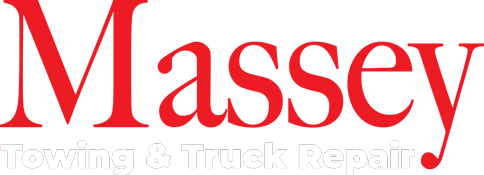Observing the useability of your steering and suspension systems is essential to your hauling needs. In fact, our heavy-duty truck repair technicians in Dallas are up 24/7 due to possible breakdowns and major accidents caused by these important components and other related issues.
With this in mind, you should look into when the best possible time would be to get them inspected to ensure you don’t waste time, money, and human resources. Use this article as your guide to know what the mechanisms do and how to determine the signs of wear and tear.
What Are the Functions of a Suspension System?
The suspension system is the mechanism that links to your vehicle’s wheels, providing a seamless driving and riding experience to straighten out bumps and other road imperfections. It also ensures your wheels are properly grounded to aid traction and precision navigation. You need your suspension to avoid bumping and moving uncontrollably due to uneven road surfaces.
As our experts would say, having a faulty or nonexistent suspension can enable the vertical force through the vehicle’s frame to pull apart from the wheels, slamming it and endangering everyone inside. There must be a finely tuned suspension through a fusion of shock absorbers and springs to mitigate accidents and ensure comfort despite going through unfavorable terrain.
What Are the Functions of a Steering System?
The steering system enables your driver to guide the vehicle effectively through the use of your steering wheel. It’s interconnected with the column and pivot joints, allowing a seamless connection with the suspension system. It ensures the wheels turn as accomplished by the driver.
For instance, the inner front wheels are significantly more angled than the outer ones, giving you more control behind the steering wheel. Thus, if you have any loosely installed joints, it would be best to consult our repair technicians and opt for rescheduling your hauling since this can lead to unfortunate accidents.
What Particular Parts of the Steering and Suspension Systems Need an Inspection?
First of all, it is crucial to have annual or bi-annual inspections and possible replacements for both your steering and suspension. You may also require more repairs as your vehicle becomes older, slowing down its efficiency and gas usage over the years. Thus, the following parts should be looked into either by a professional or an experienced driver:
- Checking the shock absorbers for leakages, cracks, and other damage
- Doing manual tire spinning to spot any wobbling, imbalances, or worn-out tires
- Inspecting the power steering pump belt for inconsistent functionality
- Noting nose dives, vehicle bounces, rolls, or squats
When Is a Good Time to Get the Steering and Suspension Systems Checked Out?
According to our heavy-duty truck repair technicians, most fleets should get their steering and suspension inspected every time they hit approximately 80,000 kilometers. Additionally, you may go for tune-ups after tire replacement, brake servicing, and oil or filter replacement. However, take note, even if you have annual servicing done, it would be wise to go through it more than once, especially if you want to be on the safe side or feel your vehicles are not performing as great as they were during their first trips.
Get Your Suspension and Steering System Inspected Today!
Every heavy hauling fleet like yours requires a team of professional heavy-duty vehicle technicians to inspect your suspension and steering systems. It has plenty of benefits in the transportation industry, including road-based disaster mitigation and optimal driving performance. Thus, while considering the telltale signs when to get your vehicles checked, consider doing this as soon as possible to avoid further costly inconveniences.
Take Advantage of the Best Heavy-Duty Truck Repairs in Dallas, TX
Massey’s Towing and Truck Service can provide you with professional heavy-duty truck repairs in Dallas, TX. We can also do maintenance checks to guarantee your utmost performance and safety while on the road. Contact us now at 214-682-7558 to claim a free quote and look after your hauling fleet.

